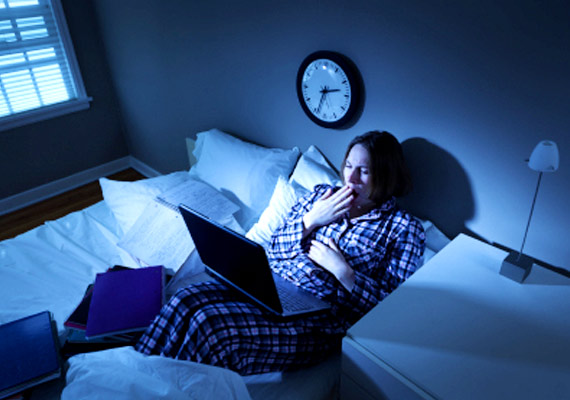Have you witnessed your teenage son getting more active in the evenings compared to rest of the day? He may be prone to develop insomnia in addition to depression and anxiety.
Teenagers who are more active in the evenings are more likely to have depression and insomnia, research finds. Such people are also more likely to have obsessive-compulsive disorder, separation anxiety and social phobia.

“Our findings suggest that the ‘eveningness’ chronotype – being more active in the evenings – is an independent risk factor for insomnia and depression,” said Pasquale Alvaro from University of Adelaide’s school of psychology.
In many countries, nearly 11 percent of teenagers aged 13-16 years experience insomnia at some stage. Having insomnia in addition to anxiety or depression can further intensify the problems being experienced with each individual disorder.
“It can lead to such problems as alcohol and drug misuse during adolescence,” Alvaro added. To reach this conclusion, Alvaro surveyed more than 300 Australian high school students aged 12-18 to better understand their sleep habits, mental health condition and the time of day they were most active.
He found that the presence of insomnia was independently linked with depression, generalised anxiety disorder and panic disorder among teenagers. The results were published in the journal Sleep Medicine.
Source: India


